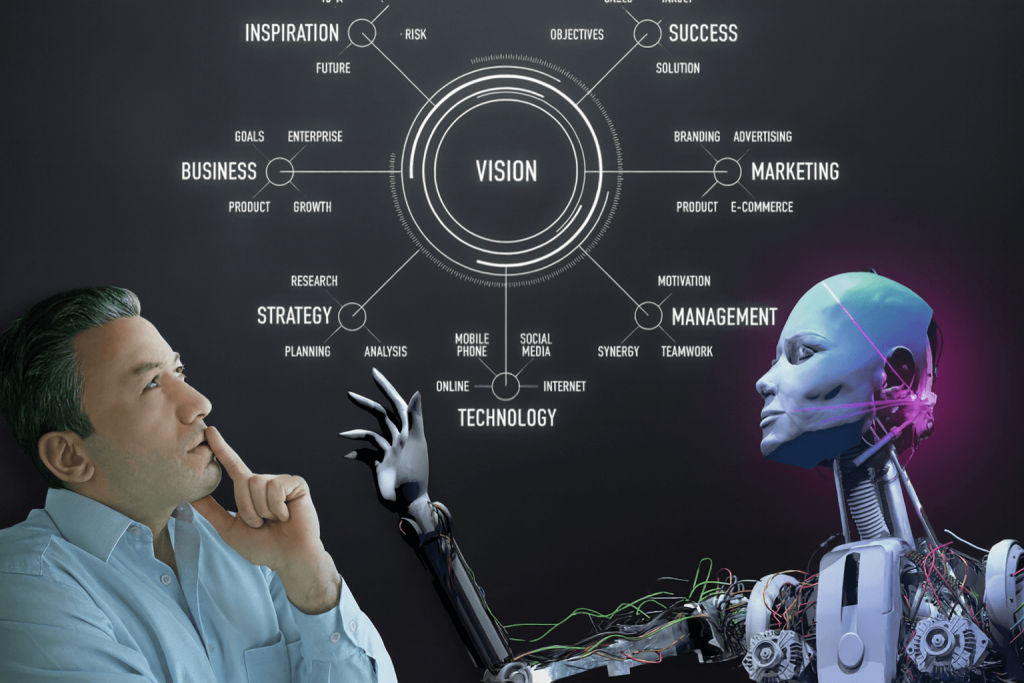Shaping the Landscape of Intelligent Systems
The story of modern progress is built on the meeting of human imagination and advancing technology. What once relied on the limits of human effort has expanded into new possibilities with the rise of learning systems. Machine learning does not exist in isolation. Instead, it reflects the vision, effort, and spirit of people who create it. Without that foundation, systems would remain empty of meaning.
Organizations today seek to blend human decision making with advanced computational models. This balance helps create technology that is more responsive, more adaptable, and more ethical. It ensures that progress benefits not just efficiency but also quality of life. This shift is not about replacing the human role but amplifying it through tools that evolve alongside us.
At the heart of this process is the commitment to build trust between human insight and machine accuracy. Businesses want solutions that are reliable and also guided by values. That combination is what makes emerging systems powerful in shaping industries.
Evolution of Data Driven Practices
The earliest days of computing were focused on raw calculations. As time passed, data began to hold new significance. Instead of being stored and forgotten, data became a tool for predicting trends and guiding choices. This transition marked the beginning of intelligence within systems.
Modern learning models have changed the expectations of what organizations can achieve.

The ability to analyze patterns in vast collections of information is a turning point. It makes tasks such as decision support, customer interaction, and even medical assessment faster and more consistent. Still, the foundation of these advances remains tied to people. Human oversight, creativity, and goals give purpose to the data.
Companies such as PNCAi illustrate how this balance can be maintained. They provide services that support both human operators and automated platforms, ensuring integration instead of isolation. Data is transformed into a strategic resource while maintaining transparency and accountability.
Why Trust Matters in Intelligent Systems
Building intelligent systems without a sense of trust risks losing the support of the people they serve. Trust is not just about accuracy in predictions or flawless execution. It is also about fairness, responsibility, and alignment with social values.
Industries from healthcare to finance are deeply aware of this challenge. A learning system that offers speed but ignores fairness can damage lives. That is why training is as important as the system itself. Skilled professionals need to guide, audit, and refine these platforms.
When companies offer training that focuses on both technical skills and ethical awareness, they prepare their workforce to interact with technology responsibly. Trust becomes a shared responsibility. This approach shows that systems do not just deliver numbers but outcomes that matter to society.
How Does Human Spirit Shape Machine Learning
The question is often asked whether machines can think like people. A more important point is how people shape the way machines function. The human spirit sets the direction of learning systems. From the creativity of developers to the determination of users, the human role is constant.
Without human intent, the code is nothing more than lines of logic. It is the spirit of problem solving and the goal of improving life that guide these models. For example, industries in education rely on learning platforms to reach students faster and more effectively. The goal is not to reduce the role of teachers but to support them.

This perspective can be seen across many fields. In customer care, learning systems can help predict needs and provide answers. Yet the compassion and understanding of human agents complete the experience. The machine organizes, but the human delivers connection. Together, they create a service that is both efficient and personal.
Building Sustainable Paths for Growth
As businesses move forward, they must think about sustainability not only in environmental terms but also in technology. A system that works only for short term gain does not support long term success. That is why training is emphasized. Skilled teams are required to manage the ongoing evolution of platforms.
Future success will rely on leaders who can balance ambition with responsibility. They must be prepared to adopt new models while also ensuring their teams are educated and empowered. Growth becomes sustainable when both sides of intelligence, human and machine, work in harmony.
A company like PNCAi demonstrates that approach through its focus on training and services. The investment is not simply in tools but in people. This ensures that organizations can adapt to change while keeping values steady.
Future Outlook of Human-Machine Collaboration
The future of technology is not a story of machines overtaking people. Instead, it is a collaboration. Machines bring speed, memory, and scale. Humans bring empathy, values, and creativity. Together, they can shape a more inclusive and responsive society.
In fields such as healthcare, education, and communication, the outlook is bright when balance is maintained.

Intelligent systems will become partners that extend human ability rather than replace it. This balance will allow industries to grow responsibly while meeting the expectations of a global population.
For leaders and teams today, the challenge is to prepare for this future with open minds. By recognizing the shared role of human spirit and machine learning, they create a path that is both innovative and sustainable.
The merging of human vision with learning systems is one of the most significant developments of our time. It is not only about tools but about the values we bring into them. Services that combine accuracy with accountability will continue to shape the modern world. Training that empowers people to guide these systems will secure trust and reliability.
For organizations ready to align human intelligence with modern platforms, now is the moment to take the step forward. Visit https://www.nsf.gov/news/ai.jsp to explore trusted resources about artificial intelligence from a government site.
If you are searching for guidance on this journey, PNCAi offers both vision and support. Reach out to our team and discover how your organization can build a future that is intelligent, ethical, and prepared for growth. Together, we can turn today’s efforts into tomorrow’s achievements.




